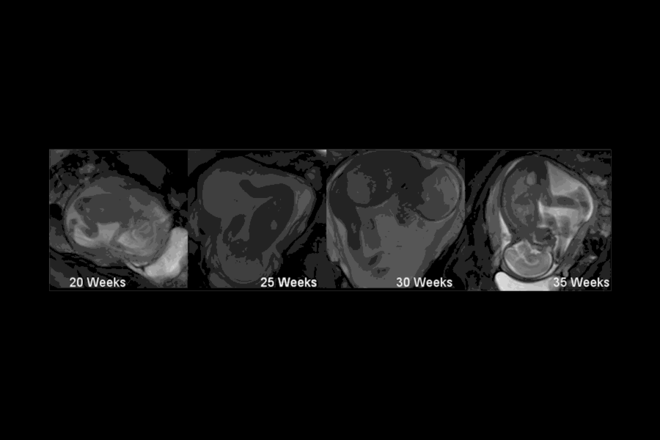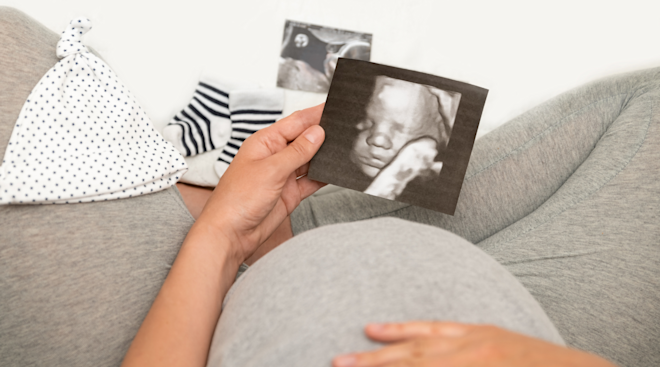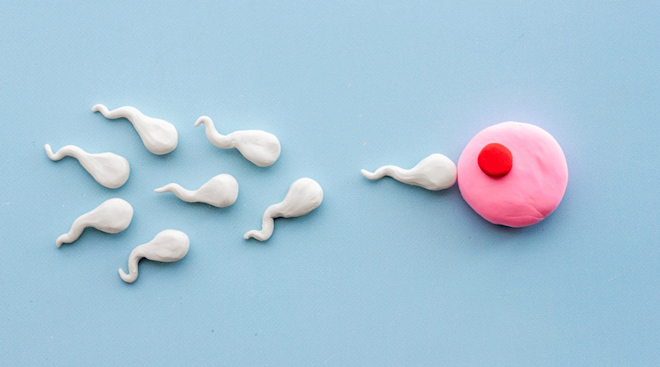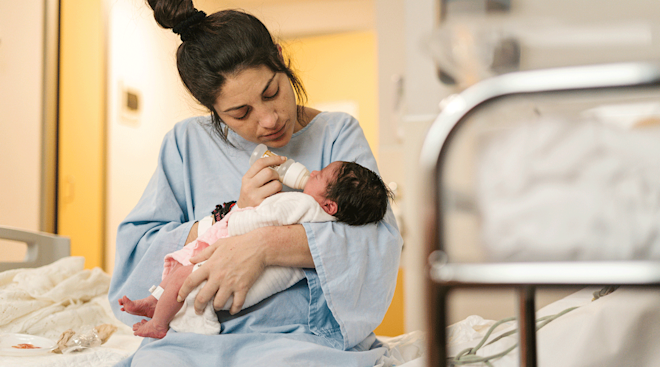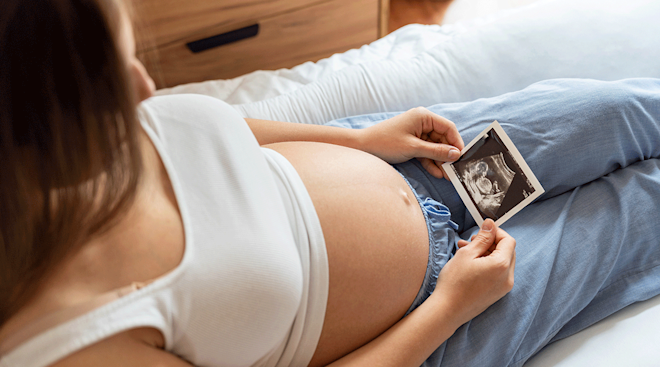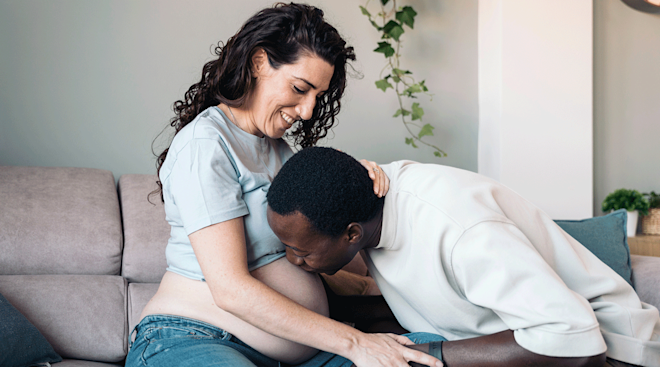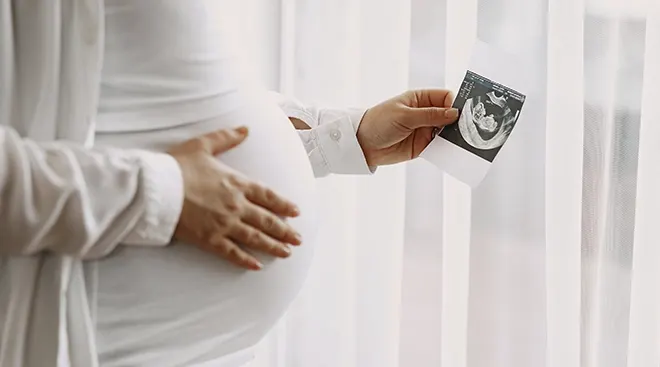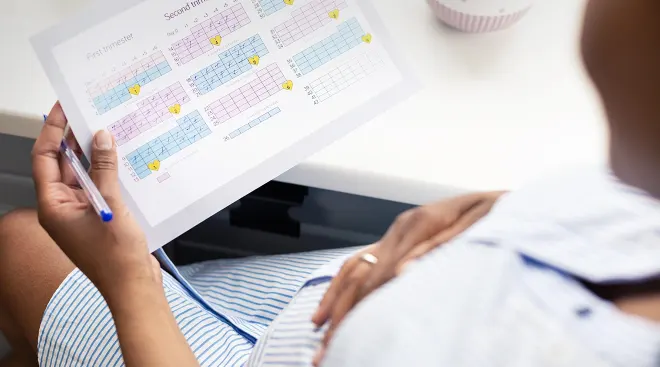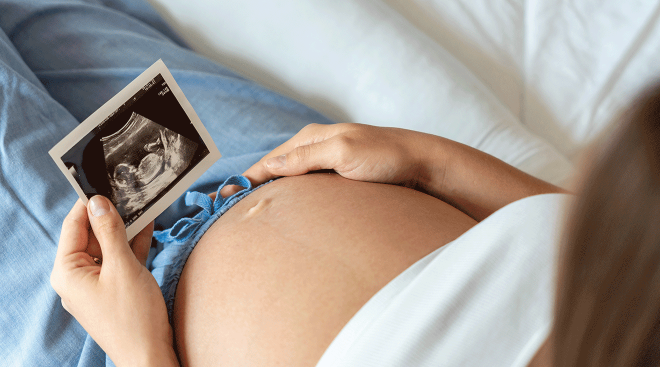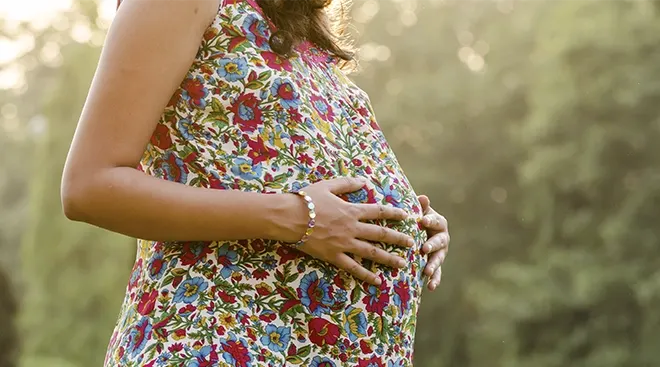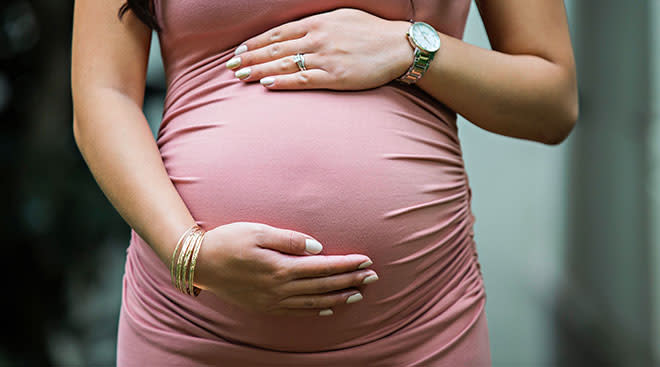This Is How Hard Your Baby Is Kicking, According to Science
It’s impossible to describe the sensation of baby kicking to someone who has never been pregnant. But research out of the Imperial College London will at least allow you to explain just how strong those kicks are.
The study, published in the Journal of the Royal Society, was the first to quantify baby kicks in utero. By using a combination of MRI scans and computer models, it determined that the force of fetal kicks increases between 20 and 30 weeks, starting at 6.5 pounds of force and escalating to 10.5 pounds of force.
Researchers also found that skeletal stress caused by this force helps with bone and joint formation. So, like you probably already knew, those swift kicks are a sign of a growing, healthy baby.
Don’t panic if you notice weaker kicks after that 30-week mark. At this point, researchers found kicks are reduced to about 3.8 pounds of force as baby begins to run out of room to move around. From 28 weeks on, doctors suggest doing kick counts to keep tabs on baby’s normal activity. If you notice a major change in frequency, contact your OB.
Please note: The Bump and the materials and information it contains are not intended to, and do not constitute, medical or other health advice or diagnosis and should not be used as such. You should always consult with a qualified physician or health professional about your specific circumstances.
Navigate forward to interact with the calendar and select a date. Press the question mark key to get the keyboard shortcuts for changing dates.

































